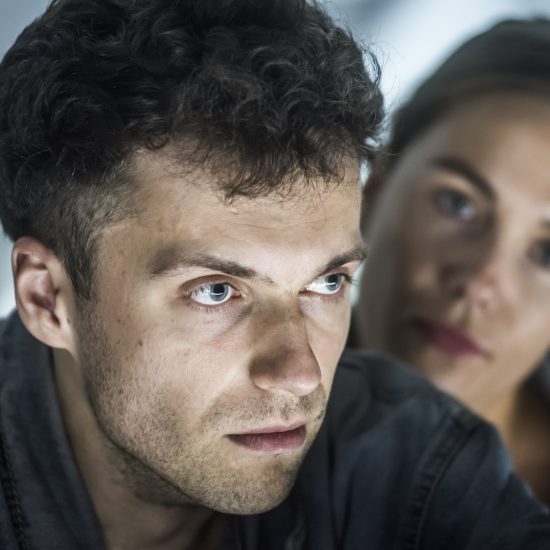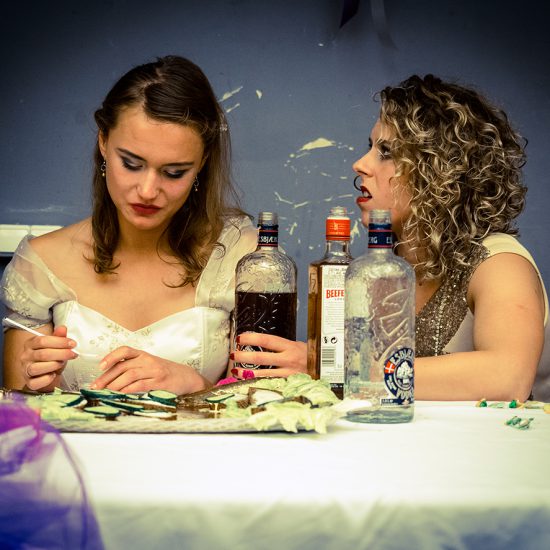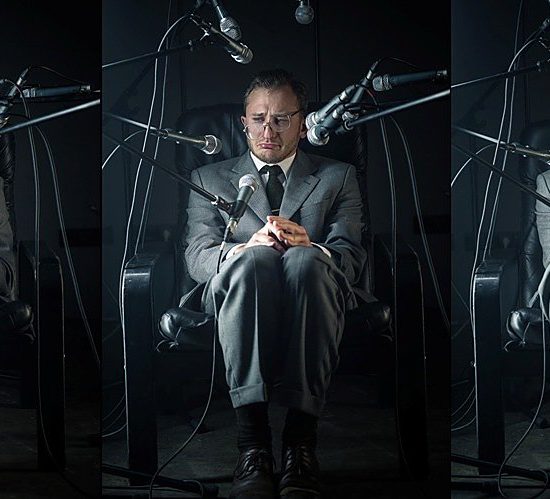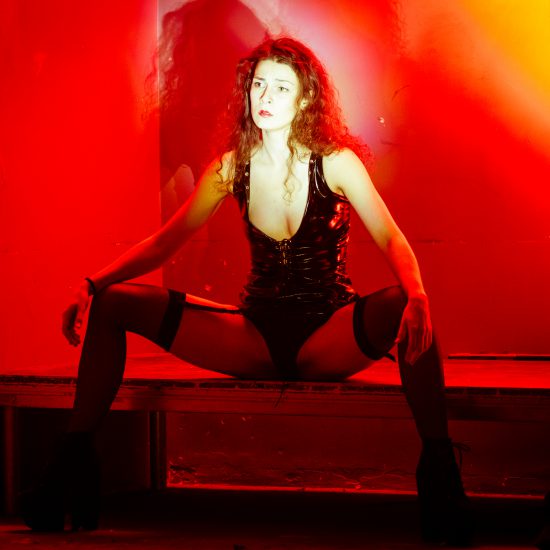The world of tragedy – a playground
The play is very sudden, full of bold movements, performed both by separate actors and their groups, very often noisy and marked by a penetrating anxiety. Although the majority of spectators didn’t understand the Lithuanian language and depended on titles, it was obvious that the development of a tragedy was more expressed by the gestures of actors and the plastic of their bodies than by the means of language. This must be the reason of an intensive tour of Lithuanians: the language of body is better understood than words.
The scenery stimulates the dynamic sequence of choreographed scenes, which sometimes remind dance theatre. The place of action – a playground equipped with a swing, a frame for climbing and a roundabout. These requisites, as well as a sandpit, are used to emphasise and picturesquely strengthen the tension between the opposite positions. The chorus, indecisively observing the destiny of the city and Oedipus, is spinning on a roundabout; the argument between the king and Creon takes place on a seesaw where they are swaying up and down. At the end of the performance in the sandpit with the lighted bottom Oedipus, symbolically depicting blindness, will be playing with sand until the light will be filled up and the chorus faces will be watching him through the bars of the climbing frame.
There is no doubt that the chorus is the greatest attraction of the performance. At the beginning the actors of the chorus show up wearing huge masks of children’s heads, later, as it comes out that Oedipus is guilty of the disasters of the city, chorus turns into lamenting Mickey Mice. The leader of the chorus is a bear who stays a faithful friend till the very end.
Such costumes of the chorus and its leader is a risky idea which could depreciate a tragedy and make fun of it. However, the decision was justified by its constant seriousness with which the masks bring us back into the world of childhood that enables Korsunovas let the contemporary spectator perceive the antique material.[…]
Never before have I seen this tragedy to be so intensive and social. Much, according to the rhythm of the performance even too much, time is given over to Oedipus sufferings after his guilt has been disclosed. However, such detail analysis of past guilt consequences may be connected to the situation of the country Korsunovas and his troupe are from.
PETER IDEN



